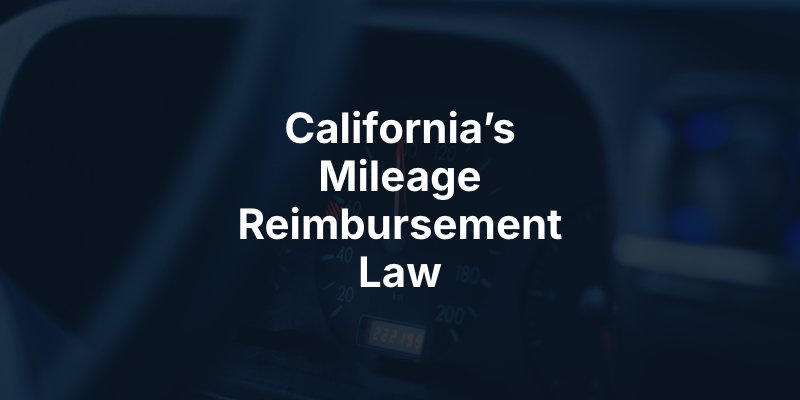California law requires that employers reimburse employees for certain travel-related expenses incurred while performing work duties. That includes mileage reimbursement when employees incur legitimate business travel costs using personal vehicles
If you have not been reimbursed by your employer for travel-related expenses while performing word duties, contact our Orange County wage and hour lawyer to discuss your legal options. Schedule your free consultation today.
Under California Labor Code § 2802, employers must indemnify employees for “all necessary expenditures or losses” incurred as part of performing their job. That includes using a personal vehicle for business tasks when the employer requires or permits it. Employers cannot force employees to absorb those vehicle‐related costs.

Necessary expenses include, but are not limited to: mileage, fuel, insurance, maintenance, depreciation, registration, licensing—anything reasonably required to operate the vehicle in a work context. The law also prohibits employers from avoiding these obligations through contracts or policies that shift expenses to the employee.
For 2025, the IRS standard mileage rate for business travel is $0.70 per mile. This rate is used widely as a benchmark for reimbursing employees for work‐related driving. California state travel policies (e.g. for state employees) also use this $0.70 per mile rate for “personal vehicles (approved business/travel expense).” Other IRS rates include:
Employers may reimburse at or above the IRS rate. If they reimburse at a lesser rate, they risk non‐compliance with § 2802 unless they can demonstrate that actual costs for the employee are lower.
Some types of vehicle use are clearly reimbursable; others are not. Key categories include:
Non‐reimbursable travel usually includes normal commuting from home to the regular workplace (unless the employer has special rules to the contrary).
To enforce or comply with reimbursement obligations, both employers and employees should maintain thorough records:
Without proper documentation, disputes are more likely and employers may be found liable for under‐reimbursement or legal penalties.
When employers fail to comply with California’s mileage reimbursement law, employees can bring claims through the labor commissioner or civil court. Potential outcomes include:
An employment lawyer in Orange County can evaluate whether travel qualifies for reimbursement, calculate the full extent of your damages, and ensure that your claim includes not only unpaid mileage but also related costs such as insurance, maintenance, and depreciation.
Legal counsel also helps employees meet strict filing deadlines, protects against retaliation, and represents them in negotiations or litigation if employers refuse to comply. With experienced guidance, you are far more likely to recover the full compensation. Schedule a free consultation with Aegis Law Firm today.